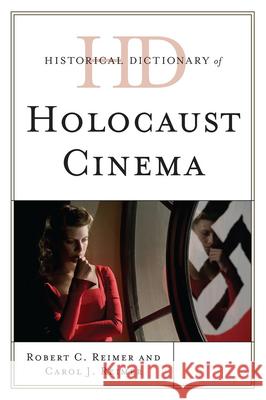Historical Dictionary of Holocaust Cinema » książka
Historical Dictionary of Holocaust Cinema
ISBN-13: 9780810867567 / Angielski / Twarda / 2012 / 272 str.
Historical Dictionary of Holocaust Cinema
ISBN-13: 9780810867567 / Angielski / Twarda / 2012 / 272 str.
(netto: 733,38 VAT: 5%)
Najniższa cena z 30 dni: 696,68 zł
ok. 13-18 dni roboczych.
Darmowa dostawa!
Some say that telling the story of the Holocaust is impossible, yet, artists have told the story thousands of time since the end of World War II in novels, dramas, paintings, music, sculpture, and film. Over the past seven decades, hundreds of documentaries, narrative shorts and features, and television miniseries have confronted the horrors of the past, creating an easily recognized iconography of persecution and genocide. While it can be argued that film and television have a tendency to trivialize, using the artifacts of popular culture - film and literature - artists keep the past alive, ensuring that victims are not forgotten and the tragedy of the Holocaust is not repeated. The Historical Dictionary of Holocaust Cinema examines the history of how the Holocaust is presented in film, including documentaries, feature films, and television productions. It contains a chronology of events needed to give the films and their reception a historical context, an introductory essay, a bibliography, a filmography of more than 600 titles, and over 100 cross-referenced dictionary entries on films, directors, and historical figures. Foreign language films and experimental films are included, as well as canonical films. This book is a must for anyone interested in the scope of films on the Holocaust and also for scholars interested in investigating ideas for future research.











